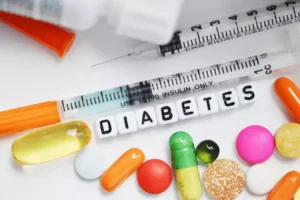Content
Our program provides resources for recruiting, training, certifying and upgrading the skills of students in IT. New HorizonsBirmingham’s exclusive IBM training partnership offers IBM authorized training on the design, installation, maintenance, and troubleshooting of IBM software and systems. This partnership allows you to redeem your IBM Education Packs at New HorizonsBirmingham. New Horizons Birmingham provides training for many industry recognized standard and credentials in project management.
Every Microsoft course at New Horizons Guam follows Microsoft Office Curriculum , and is taught by Microsoft Certified instructors so you receive the best possible training in Microsoft products. As a Microsoft Imagine Academy, students who enroll in an on-campus program have access to thousands of dollars’ worth https://remotemode.net/ of software once they finish their first course. Preparing them with the attitudes and behaviors to assist with personal and professional growth on-the-job. To summarize this anecdote, Stanger assured listeners that no one has to be a math genius or hold a bachelor’s degree to become a great IT specialist.
Institute for Professional Development
As the IT industry evolves and opportunities for careers expand, we look forward to watching the transition into tech become even more accessible, thanks to the work of CompTIA and other trade associations. The goal of the comptia authorized partner program is to provide valuable guidance and resources that help academic institutions, training organizations and government organizations prepare learners for CompTIA certifications. To develop the workforce of tomorrow, society needs to anticipate the skills that will be required in the future. EMC plays an active role as a community partner by collaborating with colleges and universities around the globe to close the growing technology skills gap through our EMC Academic Alliance initiative. This initiative provides cloud computing, Big Data analytics, information storage, and backup recovery course ware designed to fit a variety of IT-related programs. This enables students to develop highly marketable knowledge relevant to the IT industry’s future needs, and helps ensure that the industry has a strong pipeline of graduates to meet future workforce needs.
In fact,Pearson Vue’s 2023 Value of IT Certification Candidate Report suggests that 92% of learners who earned certifications are more confident in their skills and abilities and 81% have greater confidence to explore new professional opportunities. Sybex has been a leading publisher for the global information technology community for nearly 30 years. Sybex enjoys a very strong presence in the areas of IT and Business certifications and has close relationships with a number of leading technology companies, including Alias, Microsoft, and Juniper. Roopu Cloud helps worldwide enterprises across all industries leverage IT technology to reduce costs, boost scalability, ensure business continuity, and increase revenue.
Learn in a classroom setting
CompTIA certifications help to validate the knowledge and skills that learners have and show that they have initiative, are proactive, committed and resourceful – qualities that many hiring managers screen for during the interview process. That said, certified learners have a competitive edge in securing their dream tech job. Sybex®, a publishing imprint of Wiley, announced today that it has partnered with CompTIA, a provider of vendor-neutral IT certifications, and is now recognized as an Authorized Gold Partner within the CompTIA Authorized Partner Program. Sybex is a leader in publishing books for candidates preparing for CompTIA certification exams, and currently has several titles classified as Authorized or Recommended under the requirements of the CompTIA program. Roopu Cloud and CompTIA are pleased to announce that both parties have recently reached a partnership agreement to certify Roopu Cloud as an Authorized Partner.
- CompTIA works with partners like CertBlaster to help market the highest-quality learning products to IT professionals worldwide.
- As a Microsoft Imagine Academy, students who enroll in an on-campus program have access to thousands of dollars’ worth of software once they finish their first course.
- New Horizon Guam’s exclusive IBM training partnership offers IBM authorized training on the design, installation, maintenance, and troubleshooting of IBM software and systems.
- CompTIA certifications help to validate the knowledge and skills that learners have and show that they have initiative, are proactive, committed and resourceful – qualities that many hiring managers screen for during the interview process.
- This acquisition will greatly accelerate CompTIA’s training and certification offerings into more tech and IT job roles.
If learners want to become a network administrator or analyst, they take Network Foundations (Network+) to establish strong fundamentals in IT. In this collection of courses, the goal is to build familiarity with networking devices, cloud computing, and software technologies, and become Linux and Unix tools experts. Internationally recognized vendor-neutral certifications validating proficiency in networking, security, PC repair, server technology, project management, green IT, and other information technology subjects. “Taking courses from trainers , that are experienced in technology as well as various teaching methods provide learners with a distinct advantage,” Rowland said. CompTIA’s Academy Partner Program is intended for schools, not-for-profits, job corps centers and correctional facilities.
Ready for a Career in Medical, Business, or IT? Call 1-888-211-8829
CompTIA training and certification at New HorizonsBirmingham sets up for successful entry or advancement into an IT career. As a member in the CompTIA Authorized Partner program, New Horizons Guam provides CompTIA-approved curriculum that is designed for the achievement of industry-recognized CompTIA certifications. CompTIA training and certification at New Horizons Guam sets up for successful entry or advancement into an IT career. CompTIA partners are essential in helping to bridge these gaps by ensuring the IT training needed to perform these jobs is available and accessible to all. New HorizonsBirmingham has a learning partnership with VMware, a global leader in virtualization and cloud infrastructure. As an authorized VMware training partner, we will prepare you to manage server and desktop virtualization and achieve VMware certifications.
CompTIA Network+ Core CompTIA Network+ validates the technical skills needed to securely establish, maintain and troubleshoot essential networks. Learn why millions love working in IT and how you can get started changing careers today.












